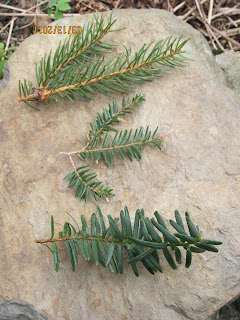There's nothing that I can say about the earthquake and tsunami in Japan that many others haven't said much better. It is a tragedy and a sobering reminder of how we are definitely
not in the drivers' seat for so many things that happen on this planet. Unlike climate, geology seems to be something that we have no effect on or control over, one way or another. All we can do is try to prepare for disasters and do rescue and recovery when they do happen.
The really sobering thing to remember is that Japan is probably the
best prepared country for earthquakes in the whole world. Everything is built to withstand earthquakes, and there is a large infrastructure in place for warning, searching, and rescuing. Even with all of this, this huge earthquake and tsunami still had devastating results. In any other country, it would have been worse. California is probably the second most well-prepared place on earth when it comes to earthquakes, so an earthquake of similar size there would probably cause similar, or even somewhat worse, damage. Other parts of the world, though, are much less prepared - especially poorer areas. A little more than a year ago, the earthquake in Haiti showed how devastating a natural disaster can have in a country where people are already living in very poor conditions and there is no mechanism for dealing with a disaster. Though much smaller than the earthquake in Japan, the death toll was probably dozens or hundreds of times larger. Similarly, the 2004 earthquake and tsunami in Indonesia and other parts of the Indian Ocean hit many poorer areas of Asia and east Africa that were less prepared to cope with the damage than a country like Japan or the USA would be.
All of these earthquakes at least happened along active fault zones where the earth's crustal plates meet, places where earthquakes can be expected to happen. Powerful earthquakes occasionally happen in unexpected places, such as the
historic New Madrid, Missouri earthquakes of 1811-1812. This was a massive earthquake that caused a section of the Mississippi river to flow
backwards. If a similar sized earthquake occurred today, it would almost certainly cause great damage across much of the US "heartland", hitting areas where neither buildings nor emergency services nor the general public are prepared for earthquakes. There are many other such places in the world, where occasional large earthquakes could occur.
Basically, people and nations all around the world need to realize that events like major earthquakes and tsunamis can happen in many different places, and that while they are extremely unlikely in most places (and you're almost 100% safe from a tsunami if you live well inland or at a high elevation), they should be remembered when designing buildings and organizing emergency services. In geology more than almost anything else on earth, we humans still have to take anything that nature dishes out and deal with it as best we can.















